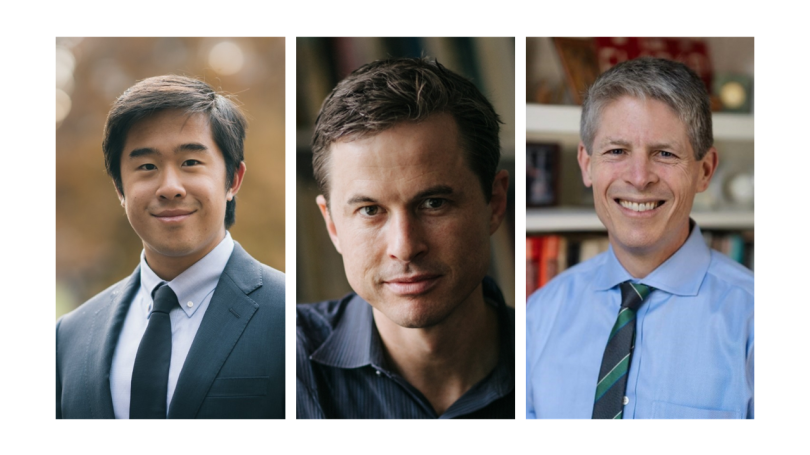
- Undergraduate
- Research
- About the Program
- News & Events
- People
Back to Top Nav
Back to Top Nav
Back to Top Nav
Back to Top Nav
Victor Wu '22, a recent graduate of Dartmouth College who triple-majored in Quantitative Social Science (QSS), Government, and Environmental Studies, recently published a peer-reviewed articleco-authored with both Professor Brendan Nyhan, who is on the QSS Steering Committee and is a member of the Department of Government, and Professor John Carey also of the Department of Government, among others. The article appears in the Harvard Kennedy School's Mis information Review and is titled, "Legislator criticism of a candidate's conspiracy beliefs reduces support for the conspiracy but not the candidate: Evidence from Marjorie Taylor Greene and QAnon."
Victor, a valedictorian of his class, is currently a student at Stanford Law School. He is taking classes in Contracts, Torts, Civil Procedure, and Legal Research & Writing and a discussion seminar called "In Search of Climate Justice." Victor is also volunteering for two projects: the Domestic Violence Pro Bono Project and the Immigration Pro Bono Project. Victor is currently applying to Political Science PhD programs in order to start work on a joint JD-PhD. After completing these two degrees, Victor plans on becoming a professor --- though he might first practice environmental law for a few years.
Abstract:
In November 2020, Georgia Republican Marjorie Taylor Greene became the first open supporter of QAnon to be elected to the United States Congress. Despite criticism from Democrats, Republicans, and the media for her belief in this dangerous conspiracy theory, Greene remains a prominent national figure and a member of Congress. In a large survey experiment examining the effects of criticisms of Greene by different sources, we found that criticism of Greene from a Republican or a Democratic official reduced positive feelings toward QAnon but not Greene herself. However, unsourced criticisms and criticisms from media figures failed to measurably affect feelings toward either Greene or QAnon. Our results suggest that public officials have a unique responsibility to criticize misinformation, but they also highlight the difficulty in shifting attitudes toward politicians who embrace and spread falsehoods